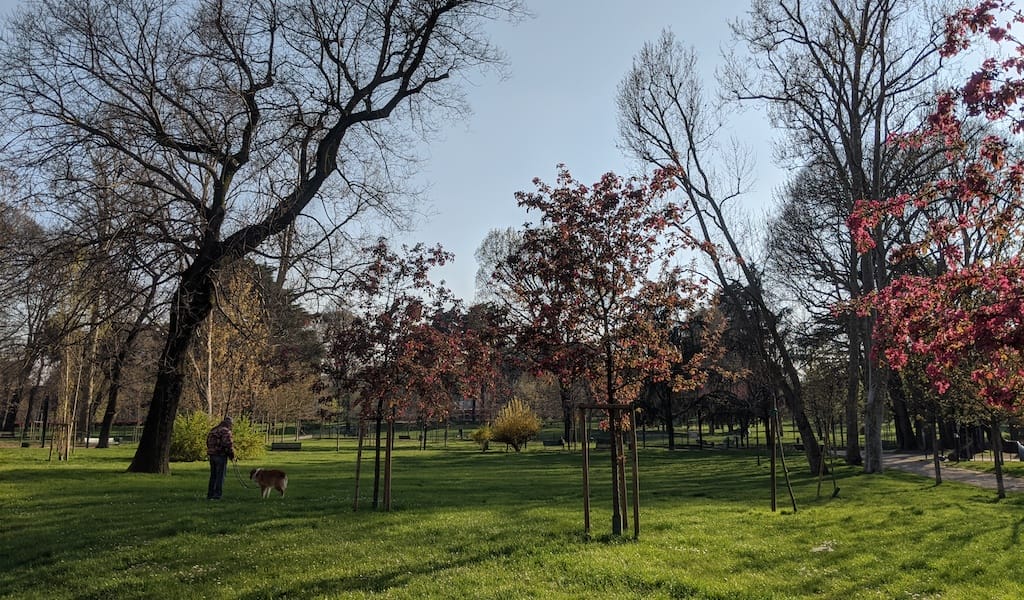There’s some good news on the solidarity front. It’s especially nice to get good news since the coronavirus crisis in Italy goes beyond any disaster, any catastrophe I could have ever imagined.
While there are few positive aspects to this experience, by nature I always see the glass half full. Professionally and psychologically, humanity will pay a high price, but I believe that we will recover soon.
And my belief is buoyed by the solidarity shown in Naples (and that has sprung up all over the world). A common issue facing Neapolitans and people all over the world are financial problems, with undeclared workers and occasional workers taking the biggest hits.
But hundreds of people in Naples have started a solidarity network to help the city’s poorest. Since March 26, it is possible to take part in “suspended shopping,” a real concrete gesture of generosity to people who are facing the fear of not only contracting coronavirus but also not being able to put a plate on the table for their children.
For decades, Neapolitans have put into practice the caffè sospeso, or suspended coffee, in which an individual pays for an extra coffee at a bar that any passing person can later claim. The simple pleasure of offering coffee to those who cannot afford it is one that many Neapolitans take joy in. It is a gesture of solidarity but it also represents the pleasure of sharing, because a caffè sospeso is like enjoying a coffee with a friend you don’t know.
The “suspended shopping” works in a similar way: After doing their shopping, an individual can leave a few euros (or some paid-for food products) with the clerk at the checkout. This donation will be used to purchase food that volunteers will deliver to people in need.
And for those who cannot physically go to these stores, it is possible to make a cash donation to a bank account to purchase food to send to people’s homes.
The “suspended shopping” initiative has been put in place by several different municipalities across the country. In Naples, you can find all the necessary information on the municipality’s website or Facebook page.
In short, a real solidarity network, one with many participants: the municipal offices that organize the service, the citizens who donate, the local merchants who organize home delivery. Obviously with the utmost respect for the human dignity of those who receive help.
It’s a good practice, one that should be exported all over the world.
 March 4, 2021 Coronavirus Diary
March 4, 2021 Coronavirus Diary
It has been 12 months since the novel coronavirus was first detected in Georgia. It was […] Posted in Tbilisi April 3, 2020 Coronavirus Diary
April 3, 2020 Coronavirus Diary
Editor’s note: We don’t operate in Milan, but it’s the home of our managing editor, Emma […] Posted in Naples April 1, 2020 Coronavirus Diary
April 1, 2020 Coronavirus Diary
Rua Antero de Quental is a short street that runs uphill from Avenida Almirante Reis – […] Posted in Lisbon
Published on March 30, 2020
Related stories
March 4, 2021
TbilisiIt has been 12 months since the novel coronavirus was first detected in Georgia. It was about the same time two CB colleagues, Celia from Lisbon and Chiara from Naples, arrived for a brief visit and joined us for what would be one of our last food walks of the year. Later, we went to…
April 3, 2020
NaplesEditor’s note: We don’t operate in Milan, but it’s the home of our managing editor, Emma Harper. So we asked her to share her experience living under lockdown in the epicenter of Italy’s outbreak. The first thing I noticed on lockdown in Milan, and the thing that has stuck with me the most, is the…
April 1, 2020
LisbonRua Antero de Quental is a short street that runs uphill from Avenida Almirante Reis – within whiffing distance of the famous Cervejaria Ramiro – to the pale yellow palace housing the Italian Embassy. Handsome 19th century buildings in various states of disrepair line both sides of the street. It’s a shortcut up to Campo…
















































































